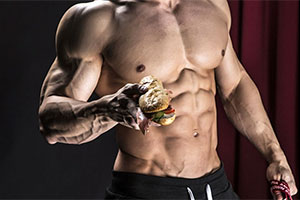Just a quick post today to share an excerpt from a book I just read while waiting at my Doctor’s office. (He was running a little behind, so I started leafing through some of his older text books).
Here’s a piece from a Nutrition text book published in 1972 called “Human Nutrition and Dietetics” by Davidson, Passmore and Brock (fifth Edition)
“The diet of an athlete should not differ from an ordinary balanced diet, except for the need for an increase in calories.”
I couldn’t agree more.
I have often said that with the exception of the calorie content, the diet of an athlete should be no different from the diet of an average person.
Usually when I say this, the “sport nutritionists” out there tend to get their noses all out of joint, but when I re-word it as, “The diet of an average person should be the same diet as an elite athlete, just with different total calorie intake.” they seem to be OK with it.
Go Figure.
The next excerpt was equally as interesting…
(Still talking about the diet of athletes)
“High energy diets should contain large amounts of fat unless they are to become very bulky. Physical activity prevents the disturbances in blood lipids which commonly arise in sedentary people on high fat diets, and large quantities of fat in the diet will do no harm to physically active people.”
A couple interesting points from this statement.
Firstly – “Unless they are to become very bulky”
Since fat does not make the diet nearly as bulky as carbohydrates or proteins, I’m going to assume that the authors are referring to the athletes in question. This suggests that 35 years ago, we seemed to have not yet developed the “Fat makes you Fat” mentality we have today.
Secondly – “large quantities of fat in the diet will do no harm to physically active people.”
This interesting quote is sure to raise many eyebrows, as it still has me thinking.
While I believe this statement is true, I will admit that my strengths are nutrition, metabolism and body composition, and not blood lipids and cardiovascular disease, so I will run this by some people who have a little more knowledge than I do in this area.
So the recommended diet for an athlete 35 years ago was to eat a healthy balanced diet, but add some more fat to keep your calories up.
Sounds perfect to me.
BP








